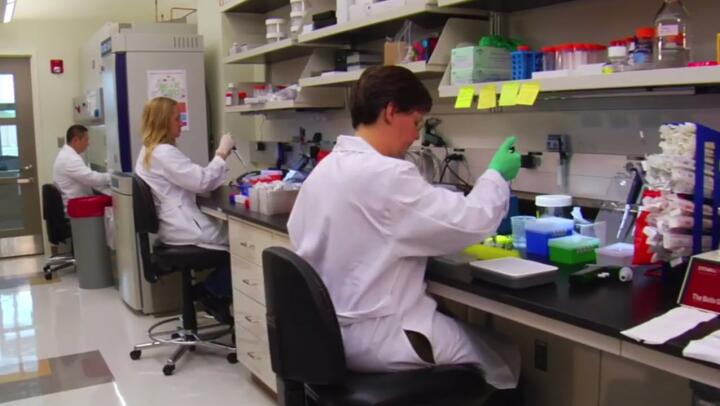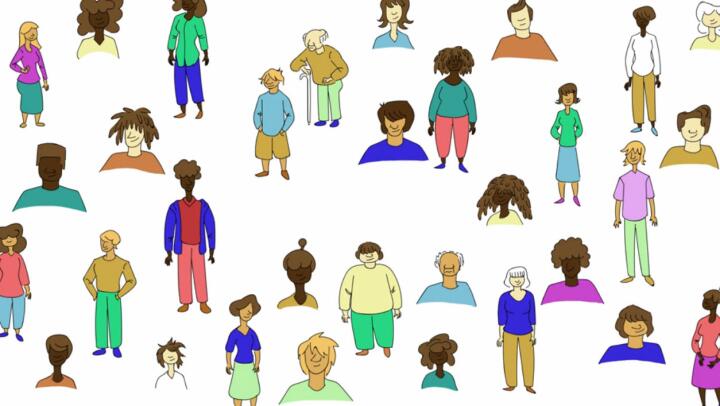7 Risk Factors for Hepatitis C

Medically Reviewed By William C. Lloyd III, MD, FACS
Written By Katie Lambert on November 21, 2022
-
 HCV Is a Silent DiseaseMost of the estimated 3.9 million people in the United States infected with the hepatitis C virus (HCV) don't know they have it. HCV usually attacks the liver without causing any symptoms until the damage is too great for the body to hide it. And while there are vaccines for hepatitis A and B, the only way to avoid hepatitis C infection is to limit your risk. Here are seven signs you should get an HCV test.
HCV Is a Silent DiseaseMost of the estimated 3.9 million people in the United States infected with the hepatitis C virus (HCV) don't know they have it. HCV usually attacks the liver without causing any symptoms until the damage is too great for the body to hide it. And while there are vaccines for hepatitis A and B, the only way to avoid hepatitis C infection is to limit your risk. Here are seven signs you should get an HCV test. -
 1. You Use DrugsInjecting drugs is the number one method of transmission for hepatitis C in the United States. HCV infections are reaching epidemic proportions among young injection drug users, one-third of whom have the virus. The rate is much higher in users and former users older than 30 years. It's not just needles that transmit the virus. HCV can live in cookers, filters, and other drug paraphernalia.
1. You Use DrugsInjecting drugs is the number one method of transmission for hepatitis C in the United States. HCV infections are reaching epidemic proportions among young injection drug users, one-third of whom have the virus. The rate is much higher in users and former users older than 30 years. It's not just needles that transmit the virus. HCV can live in cookers, filters, and other drug paraphernalia. -
-
 2. You're on DialysisWhen a person's kidneys are in end-stage failure, a machine has to filter their blood for them. There are plenty of infection control guidelines in place, but accidents happen. Improper sterilization of the equipment can allow the virus to spread between dialysis patients.
2. You're on DialysisWhen a person's kidneys are in end-stage failure, a machine has to filter their blood for them. There are plenty of infection control guidelines in place, but accidents happen. Improper sterilization of the equipment can allow the virus to spread between dialysis patients. -
 3. You Have HIVAbout one-quarter of people with HIV in the United States also have HCV. This is called co-infection. Having HIV makes people more susceptible to the effects of hepatitis C, tripling liver complications. Co-infection also makes treating HIV more complex, so find an infectious disease medicine doctor who has experience with both diseases.
3. You Have HIVAbout one-quarter of people with HIV in the United States also have HCV. This is called co-infection. Having HIV makes people more susceptible to the effects of hepatitis C, tripling liver complications. Co-infection also makes treating HIV more complex, so find an infectious disease medicine doctor who has experience with both diseases. -
 4. You Work in HealthcareAnyone who comes in contact with blood, bodily fluids, or human tissue on a regular basis is at risk of hepatitis C infection. Nurses, physician assistants, doctors, and other healthcare providers who handle needles have an increased chance of exposure to the virus. There are effective infection control procedures in place, but accidents do happen.
4. You Work in HealthcareAnyone who comes in contact with blood, bodily fluids, or human tissue on a regular basis is at risk of hepatitis C infection. Nurses, physician assistants, doctors, and other healthcare providers who handle needles have an increased chance of exposure to the virus. There are effective infection control procedures in place, but accidents do happen. -
 5. You're in Jail or PrisonAbout one in three incarcerated persons has the hepatitis C virus, according to the Centers for Disease Control and Prevention (CDC). Drug use is common in prisons, as are tattoos and piercings using shared and non-sterile equipment.
5. You're in Jail or PrisonAbout one in three incarcerated persons has the hepatitis C virus, according to the Centers for Disease Control and Prevention (CDC). Drug use is common in prisons, as are tattoos and piercings using shared and non-sterile equipment. -
-
 6. You Received a Blood Transfusion or Organ Transplant Before 1992The risk of contracting hepatitis C from a blood transfusion today is very small: about one in 1.6 million. But before 1992—the year HCV screening tests started—the risk was higher. This is one of the possible factors contributing to the high rate of HCV in baby boomers. The baby boomer population is five times more likely than the general population to be infected.
6. You Received a Blood Transfusion or Organ Transplant Before 1992The risk of contracting hepatitis C from a blood transfusion today is very small: about one in 1.6 million. But before 1992—the year HCV screening tests started—the risk was higher. This is one of the possible factors contributing to the high rate of HCV in baby boomers. The baby boomer population is five times more likely than the general population to be infected. -
 7. You Were Born to a Mom With Hepatitis CChances are low that a pregnant woman with hepatitis C will transmit the virus to her baby—about 5%. Yet the risk is higher if she also has HIV. Whether a mom delivers the baby vaginally or through a C-section doesn't affect the baby’s risk.
7. You Were Born to a Mom With Hepatitis CChances are low that a pregnant woman with hepatitis C will transmit the virus to her baby—about 5%. Yet the risk is higher if she also has HIV. Whether a mom delivers the baby vaginally or through a C-section doesn't affect the baby’s risk.
7 Risk Factors for Hepatitis C



















